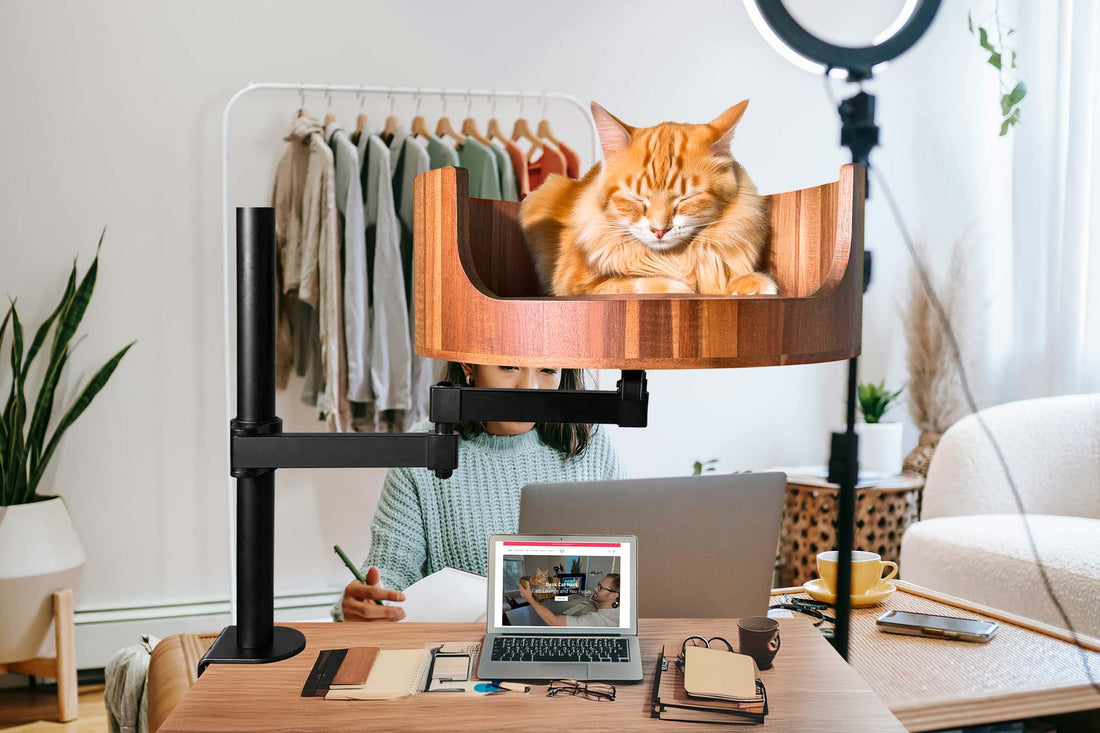
Why Does My Cat Only Bite Me? Understanding Feline Behavior
Share
Have you ever found yourself scratching your head as to why your cat always seems to only bite you? Understanding feline behavior can be a complex and intriguing journey, filled with insights into the unique personalities of our beloved pets. In this article, we will delve into the reasons behind why cats may exhibit such behavior, offering valuable tips and information to help you better understand and communicate with your feline friend.
From territorial instincts to playful aggression, there are a variety of factors that can contribute to a cat's tendency to bite their human companions. By exploring these underlying causes, we can gain a deeper understanding of our cats' behavior and learn how to effectively respond and prevent such actions. Additionally, we will discuss strategies for building a strong bond with your cat, fostering trust and respect in your relationship. So, if you've ever wondered why your cat seems to have a biting preference for you, stay tuned as we unravel the mysteries of feline behavior and offer guidance on how to navigate your kitty's unique quirks.
1. Cats may bite as a form of communication, expressing discomfort or seeking attention.
2. Understanding a cat's body language can help decipher their intentions and prevent biting incidents.
3. Socialization and positive reinforcement can help reduce biting behavior in cats.
4. Some cats may bite due to fear or overstimulation, requiring a calm and safe environment.
5. Seeking guidance from a veterinarian or animal behaviorist can provide further insights into a cat's biting habits and how to address them effectively.
Causes of Cat Biting
There are several reasons why your cat may be biting you. One common cause is play aggression, where cats use their teeth and claws during playtime. Another reason could be fear or anxiety, especially if your cat is feeling threatened or stressed. Medical issues, such as dental problems or pain, can also lead to biting behavior. It's essential to understand the underlying cause of your cat's biting to address the issue effectively.
Socialization and Training
Proper socialization and training play a crucial role in preventing biting behavior in cats. Kittens should be exposed to different people, animals, and environments from a young age to learn appropriate behavior. Positive reinforcement training can help teach cats to use their claws and teeth gently during playtime. Consistency and patience are key when training your cat to stop biting.
Body Language and Communication
Understanding your cat's body language and communication cues can help prevent biting incidents. Cats often give warning signs before they bite, such as dilated pupils, flattened ears, and a flicking tail. It's essential to pay attention to these signals and give your cat space if they are feeling uncomfortable or stressed. By respecting your cat's boundaries and avoiding triggers, you can create a more harmonious relationship with your feline friend.
Seeking Professional Help
If your cat's biting behavior persists despite your efforts to address it, seeking help from a professional, such as a veterinarian or animal behaviorist, may be necessary. They can assess your cat's behavior, provide personalized advice, and develop a behavior modification plan to help curb biting tendencies. It's essential to address biting behavior promptly to prevent injuries and maintain a healthy relationship with your cat.
Desk Cat Nest FAQ
Why does my cat only bite me?
There could be several reasons why your cat is exhibiting this behavior. It could be due to stress, fear, playfulness, or even health issues. It's important to observe your cat's body language and behavior to try and determine the underlying cause.
Will the Desk Cat Nest help with my cat's biting behavior?
The Desk Cat Nest provides a cozy and safe space for your cat to retreat to, which can help reduce stress and anxiety. By giving your cat a designated area to relax and play, it may help redirect their biting behavior.
How should I introduce my cat to the Desk Cat Nest?
It's best to gradually introduce your cat to the Desk Cat Nest by placing treats or toys inside to entice them. Allow your cat to explore the nest at their own pace and make sure it's a positive experience for them.
Can the Desk Cat Nest be used for multiple cats?
Yes, the Desk Cat Nest can accommodate multiple cats, depending on their size and how comfortable they are with sharing space. Make sure to provide enough room for each cat to have their own space within the nest.
Is the Desk Cat Nest easy to clean?
Yes, the Desk Cat Nest is designed for easy cleaning. Simply remove the cushion and wash it according to the instructions provided. You can also wipe down the nest itself with a damp cloth if needed.
In conclusion, providing your cat with a comfortable and designated space, such as the Desk Cat Bed, can help address the issue of biting. The Desk Cat Bed offers a cozy and secure spot for your cat to rest and relax, reducing stress and anxiety that may contribute to biting behavior. Additionally, the raised design of the bed allows your cat to have a clear view of its surroundings, promoting a sense of security and control. By investing in a Desk Cat Bed, you are not only providing a safe space for your feline friend, but also promoting positive behavior and strengthening the bond between you and your cat.



















































